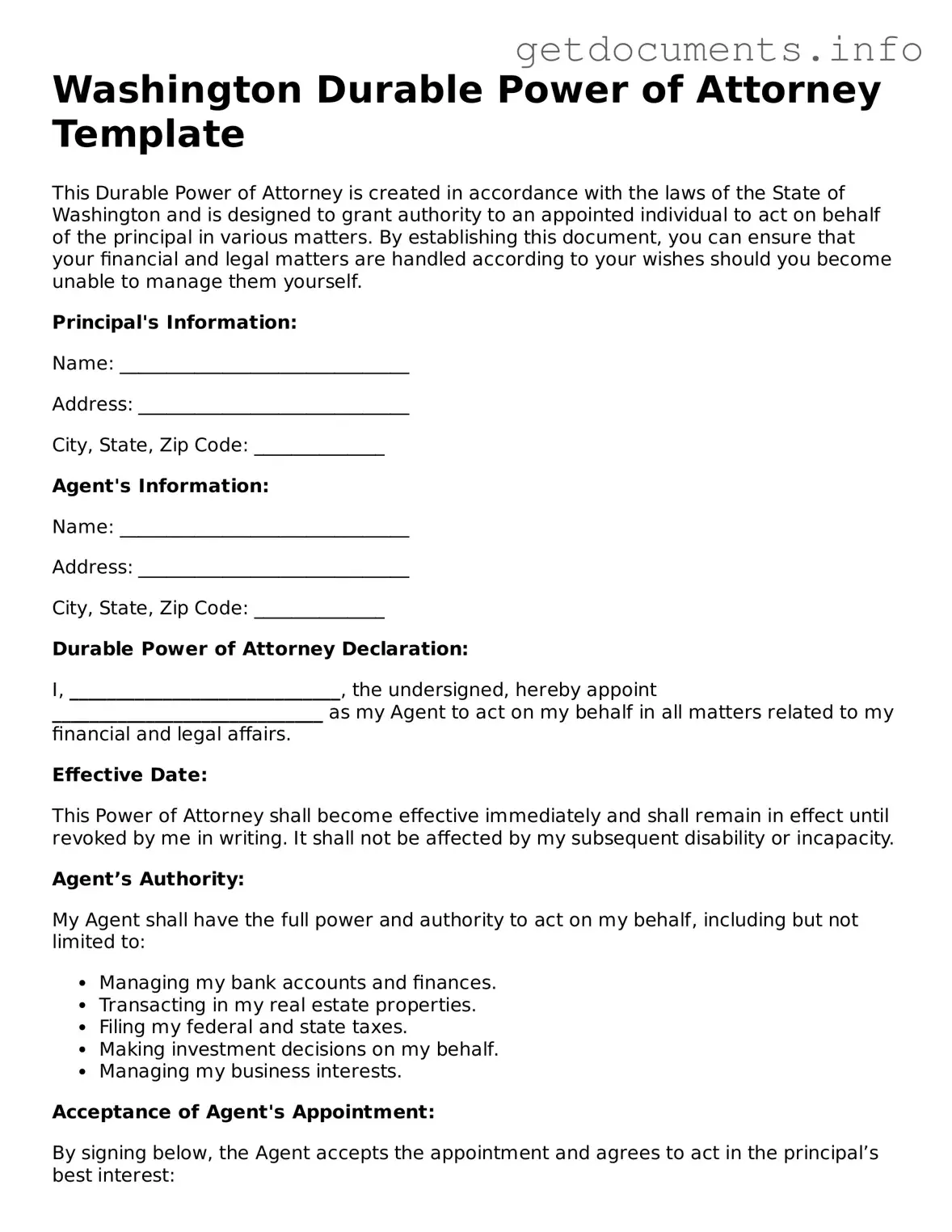Free Durable Power of Attorney Template for Washington
A Washington Durable Power of Attorney form is a legal document that allows an individual to designate another person to make financial and legal decisions on their behalf. This form remains effective even if the individual becomes incapacitated, ensuring that their affairs can be managed without interruption. For those interested in establishing this important legal arrangement, filling out the form is essential; click the button below to get started.
Access Durable Power of Attorney Editor

Free Durable Power of Attorney Template for Washington
Access Durable Power of Attorney Editor
Got places to be? Complete the form fast
Fill out Durable Power of Attorney online and avoid printing or scanning.
Access Durable Power of Attorney Editor
or
⇩ PDF File
